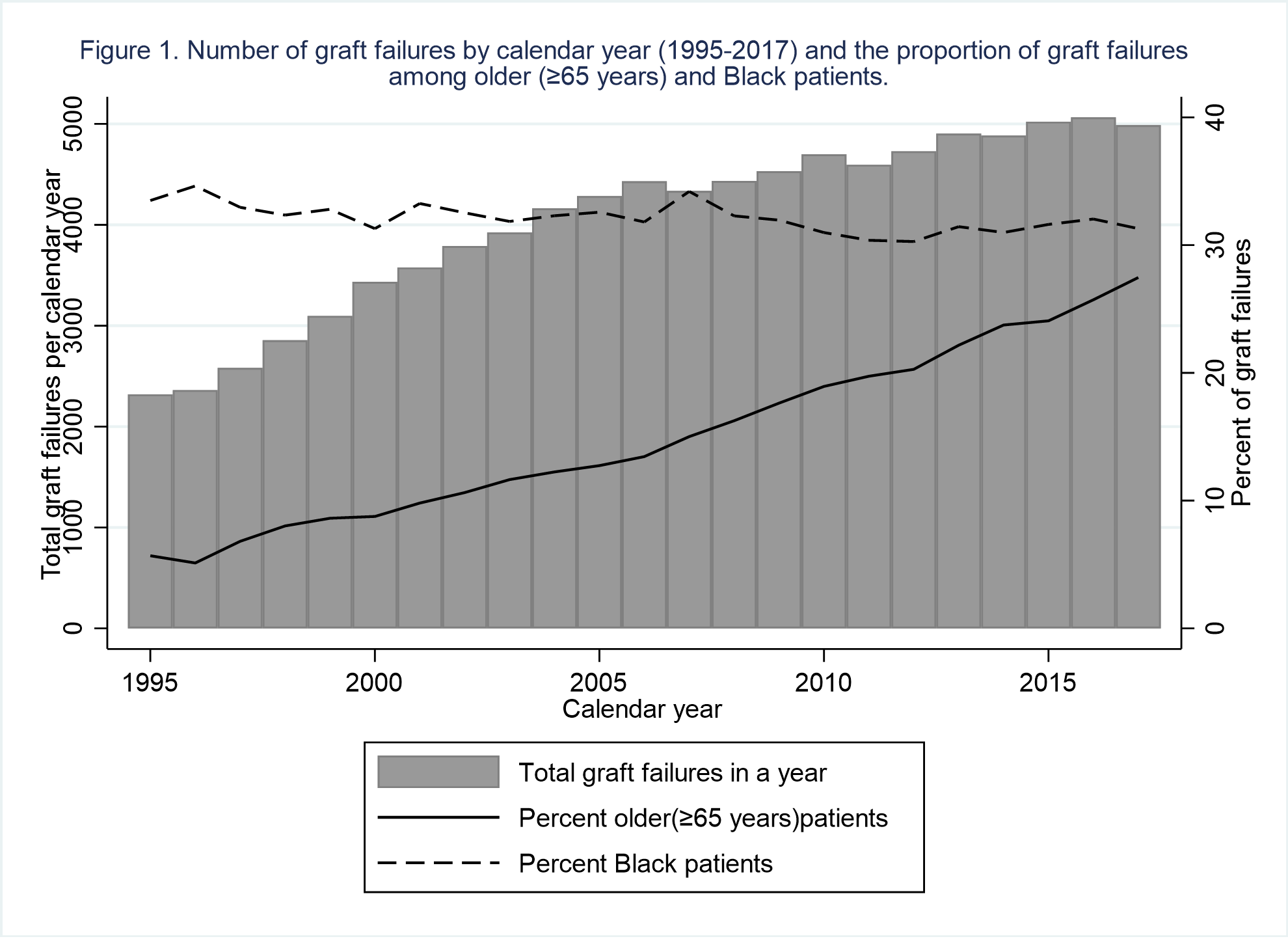Age and Racial Disparities in Access to Re-kidney Transplantation
1Department of Transplantation Surgery, Johns Hopkins School of Medicine, Baltimore, MD, 2McGill University, Montreal, QC, Canada, 3Department of Epidemiology, Johns Hopkins School of Medicine, Baltimore, MD
Meeting: 2021 American Transplant Congress
Abstract number: 285
Keywords: African-American, Age factors, Graft failure, Retransplantation
Topic: Clinical Science » Organ Inclusive » Non-Organ Specific: Disparities to Outcome and Access to Healthcare
Session Information
Session Name: Disparities in Access and Outcomes in Kidney Transplantation
Session Type: Rapid Fire Oral Abstract
Date: Monday, June 7, 2021
Session Time: 6:00pm-7:00pm
 Presentation Time: 6:20pm-6:25pm
Presentation Time: 6:20pm-6:25pm
Location: Virtual
*Purpose: Graft failure is likely increasing among kidney transplant (KT) recipients due to improvements in patient survival. While the benefits of re-KT have been well documented, there are likely disparities in access to re-KT; we quantified the trends and disparities in access to re-KT.
*Methods: Using USRDS data, we identified 93,014 adult patients whose first KT graft failed between 1995-2017. We examined trends in graft failure over time and outcomes after graft failure by age, sex, and race. We estimated the chance of listing for re-KT, as well as waitlist mortality, and re-KT among those who were listed (n=46,613) by age, sex, and race using the Kaplan Meier method and adjusted Cox proportional hazards models.
*Results: The number of graft failures increased from 2,320 in 1995 to 4,988 in 2017. There were substantial increases in the proportion of older (≥65 years) patients with graft failure; 5.7% in 1995 to 27.5% in 2017. The proportion of Black patients remained steady among those with graft failure, 33.5% in 1995 and 31.3% in 2017, while the proportion of women was 41.1% in 1995 and 39.9% in 2017. The chance of listing for re-KT was lower among older patients (adjusted hazard ratio [aHR]=0.37, 95% CI: 0.36-0.39) and Black patients (aHR=0.79, 95% CI: 0.77-0.81). Only, older patients had a higher risk of waitlist mortality (aHR=2.59, 95% CI: 2.40-2.79). Older patients (aHR=0.92, 95% CI: 0.85-0.99) and Black patients (aHR=0.53, 95% CI: 0.50-0.55) were less likely to receive re-KT. There were no differences in listing, waitlist mortality, or KT by sex.
*Conclusions: There are age and racial disparities in access to re-KT. Efforts should be made to improve equitable access to re-KT for older and Black patient with graft failure.
To cite this abstract in AMA style:
Patole SS, Ahn J, Sandal S, Segev D, Demarco MMcAdams. Age and Racial Disparities in Access to Re-kidney Transplantation [abstract]. Am J Transplant. 2021; 21 (suppl 3). https://atcmeetingabstracts.com/abstract/age-and-racial-disparities-in-access-to-re-kidney-transplantation/. Accessed March 2, 2026.« Back to 2021 American Transplant Congress

